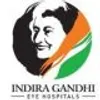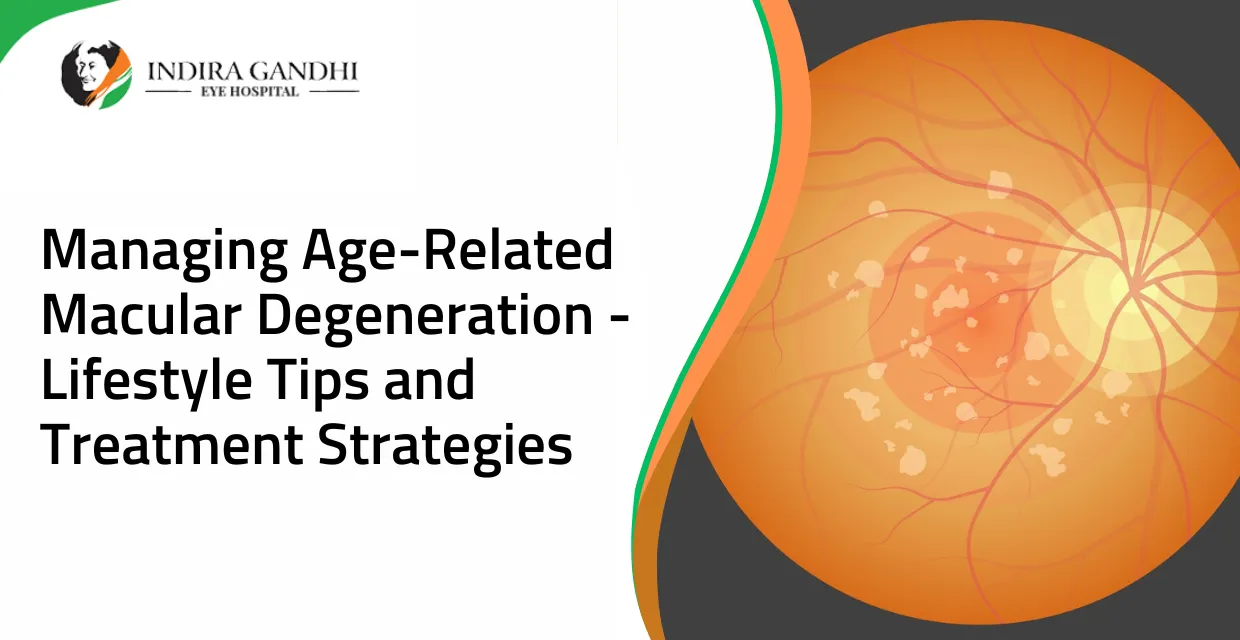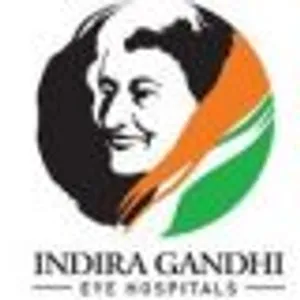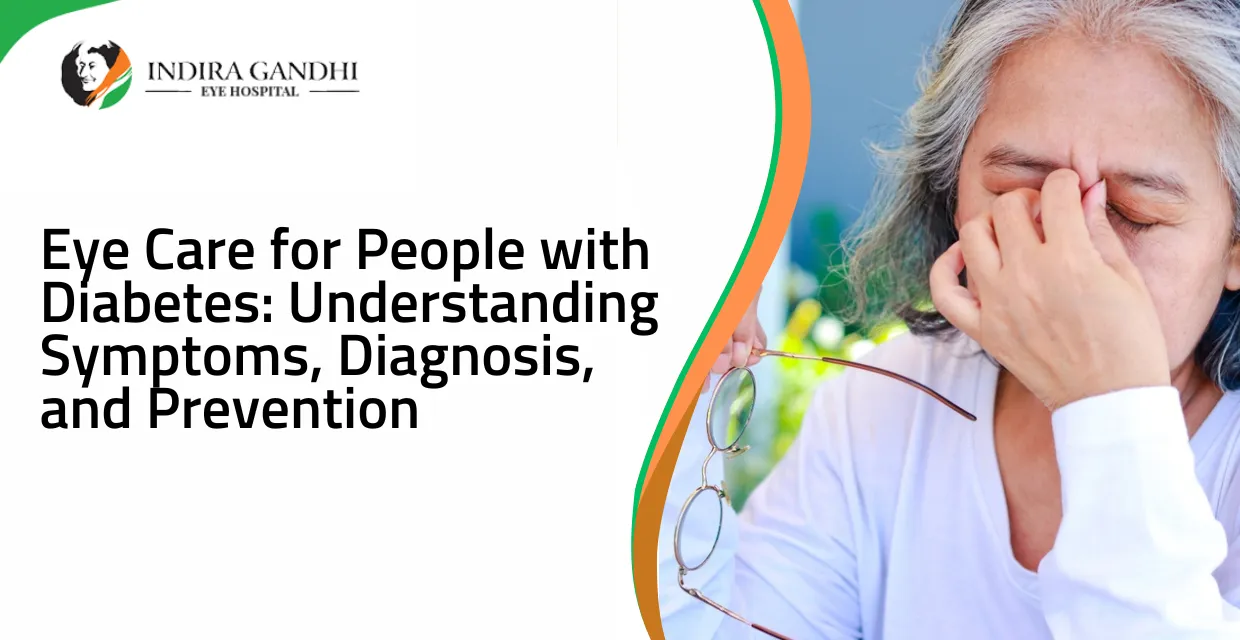Looking for the best way to manage age-related macular degeneration? You are not alone. Millions of people worldwide suffer from this condition and finding the right solutions can be difficult. However, there are top doctors and facilities that specialize in providing high-quality eye care.

Finding the Best Eye Care Professionals
AMD is a progressive eye condition that can cause vision loss and impact millions of people all over the world. Managing AMD with lifestyle changes, the right diet, and treatments is vital to help maintain your vision. Finding the best professionals for your eye care is crucial for managing AMD and protecting against further vision loss.
When finding a qualified professional for your eye care needs related to AMD, there are several considerations to make first before committing to any one doctor or specialist. Indira Gandhi Eye Hospital & Research Centre is a great example of high-quality eye care available through experienced doctors at an affordable price. Other resources such as online reviews or referrals from friends can help you find an appropriate doctor who specializes in treating conditions such as AMD specifically.
When it comes to the exam itself, several different types of examinations can be conducted depending on what kind of information you need regarding your eyesight or overall health status related to macular degeneration. Knowing what type of exam is needed will depend on what kind of information is required by both patient and physician, and most insurance plans will cover some portion, if not all, of these costs associated with necessary exams.
When considering treatments that may be recommended by a physician specializing in macular degeneration, it's important to understand both potential benefits and drawbacks associated with each option presented as well as any side effects they may experience during therapy sessions. Additionally, certain nutritional supplements have been linked positively towards improving visual acuity levels amongst patients suffering from age-related macular degeneration so always research each option thoroughly prior to choosing which route best suits an individual’s needs.
Common challenges encountered when dealing with age-related macular degeneration include difficulty seeing clearly during daytime hours due to decreased pigment density within the central area causing blurriness/distortion, difficulty recognizing faces due to lack of contrast between features, and performing daily tasks becoming increasingly challenging leading to feelings of frustration and depression. Awareness surrounding this topic has grown exponentially in recent years, however, still, much work must be done to ensure proper diagnosis and treatment plans are implemented where possible.
What to Expect from High-Quality Eye Care?
AMD is a progressive eye condition that affects millions of people globally. It is the leading cause of vision loss among older adults and can be a difficult condition to manage. Fortunately, with the right eye care regimen and treatment strategies, you can reduce your risk of developing AMD or better manage its symptoms. At Indira Gandhi Eye Hospital and Research Centre, our top doctors provide high-quality care for AMD patients to help them navigate their diagnosis and improve their overall quality of life.
When it comes to AMD, it is important to understand the causes and symptoms associated with this eye condition. Common causes include age, genetics, smoking habits, diet habits, or exposure to ultraviolet radiation from the sun over time. Symptoms may include blurry vision or blind spots in certain areas of your field of vision when looking at objects close up or far away. If left untreated, these symptoms will worsen over time as more damage occurs in the back layer of your eyes known as the macula.
At Indira Gandhi Eye Hospital and Research Centre, we offer different types of eye care for AMD patients depending on their individual needs. Our highly trained staff will work closely with you to develop a practical course of action based on lifestyle tips and treatment strategies that have been proven successful in managing this condition. These may include taking nutritional supplements like Omega 3 fatty acids or vitamins C & E, quitting smoking, using sunglasses when outdoors, protecting your eyes from UV radiation, getting regular checkups by an ophthalmologist, having regular dilated retinal exams done every 2 years if you are over 50 years old, monitoring blood pressure levels regularly if high blood pressure is present, and controlling other chronic diseases like diabetes that may increase your risk for AMD. A comprehensive high-quality eye care regimen enables individuals living with this disease to better manage their diagnosis while still maintaining an active lifestyle without sacrificing visual acuity significantly if any at all.
With so many benefits associated with obtaining proper treatment for age-related macular degeneration, there are also some potential risks involved, including adverse side effects related to medications used during treatment. It’s important that you consult one of our top doctors here at Indira Gandhi Eye Hospital before beginning any type of medication regimen for managing AMD. They can provide insight into how best to approach managing this serious medical issue while providing excellent patient-centred care every step along the way.
Managing Age-Related Macular Degeneration with Lifestyle Tips and Treatment Strategies
AMD affects millions of people as they age, causing progressive vision loss and difficulty with everyday tasks. Lifestyle tips and treatment strategies can help manage AMD and slow its progression.
Living a healthy lifestyle is one of the best ways to prevent or slow down the progression of AMD. Eating nutritious foods with plenty of fruits and vegetables can help protect your eyes from further damage due to AMD. It's also important to avoid smoking and to maintain good cardiovascular health with regular exercise.
Having regular checkups every 6 months with an optometrist or ophthalmologist can help manage symptoms and monitor any existing issues more closely. They may recommend treatments such as medications, laser therapy, or surgery depending on the severity level.
Individuals may also be recommended to make dietary changes such as avoiding processed sugar, fried food, and alcohol. Natural supplements containing omega-3 fatty acids, zinc, copper, vitamins C, E, beta-carotene, etc. may provide relief but should be consulted with a doctor before starting any new supplement regimen.
Overall, managing AMD requires dedication, commitment, and patience, but the steps outlined above will prevent further vision loss and enable individuals to live happy, productive lives despite their diagnosis.
Bottom Line
AMD is a serious eye condition that affects millions of people worldwide. It can lead to progressive vision loss and difficulty with everyday tasks. However, it is possible to manage AMD and slow its progression through lifestyle changes, treatment options, and regular comprehensive eye exams by visiting an ophthalmologist. Indira Gandhi Eye Hospital & Research Centre provides top-notch care for AMD patients with experienced staff and comprehensive treatment plans tailored to each individual’s needs. If you are experiencing any signs associated with AMD, seek help from one of the top doctors at the Indira Gandhi Eye Hospital today! With early detection being key to reducing the risk of advancing stages of the disease, it is best to start managing AMD as soon as possible.



